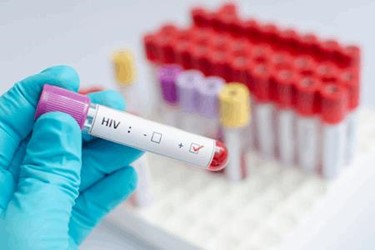J&J Announces First Efficacy Study For HIV-1 Preventive Vaccine

By Ed Miseta, Chief Editor, Clinical Leader

On the eve of World AIDS Day 2017, the Bill & Melinda Gates Foundation and the National Institutes of Health (NIH) have joined forces with Johnson & Johnson (J&J) to advance a potential “global vaccine” that could prevent a wide range of viral strains responsible for the world’s HIV pandemic.
Janssen Pharmaceutical Companies (the research arm of J&J), along with its partners, have initiated the first efficacy study for an investigational mosaic HIV-1 preventive vaccine. Paul Stoffels, chief scientific officer for J&J, said in a written statement that developing a vaccine against HIV is a top priority for Janssen and the best hope for a world without AIDS. Stoffels added that finding an effective HIV vaccine to protect people at risk has been a major scientific challenge. Still, he believes there is new optimism that the goal is now within reach. For that reason, J&J has joined forces with leading HIV researchers and global health advocates to help advance an experimental vaccine. “Working together, our ultimate goal is to support efforts to make HIV history,” notes Stoffels.
The new, large-scale study, also known as “Imbokodo,” will evaluate whether the investigational Janssen vaccine regimen is safe and effective at reducing the incidence of HIV infection among 2,600 women in sub-Saharan Africa. A release from J&J notes that although there have been great advances in HIV treatment and prevention in recent years, nearly 2 million people still become infected with HIV every year. According to UNAIDS, the Joint United Nations Program on HIV/AIDS, women and girls account for nearly 60 percent of people living with the HIV virus in eastern and southern Africa.
The two primary partners in the study are the Bill & Melinda Gates Foundation and the National Institute of Allergy and Infectious Diseases (NIAID). Additional partners include the U.S. Military HIV Research Program at the Walter Reed Army Institute of Research, U.S. Army Medical Materiel Development Activity, the Ragon Institute of Massachusetts General Hospital (MGH), Massachusetts Institute of Technology (MIT), and Harvard. Coordination of the clinical sites is provided by the NIAID-funded HIV Vaccine Trials Network (HVTN), while the South African Medical Research Council (SAMRC) is helping to implement the study in South Africa.
Ending A Global Health Challenge
The Imbokodo study is the result of a public-private partnership committed to responding to HIV. The initiation of Imbokodo means that, for the first time in over a decade, two HIV vaccine efficacy studies are taking place at the same time. Another study is currently underway in South Africa to evaluate a different vaccine candidate. The search for an effective HIV vaccine has been a challenge due in part to the unique properties of the virus. Those properties include its ability to mutate rapidly and its global genetic diversity with multiple strains and subtypes prevalent in different parts of the world.
Having a preventive vaccine would play an instrumental role in a comprehensive global strategy to end the HIV pandemic. Janssen’s investigational vaccine is based on mosaic antigens that have been engineered using genes from a wide range of different HIV subtypes. According to Janssen, the ultimate goal is to deliver a “global vaccine” that could be deployed in any geographic region of the world to help protect vulnerable populations at risk of infection.
In 2016, an estimated 37 million people were living with HIV-1 globally, and 1.8 million people became newly infected with the virus. An estimated 790,000 new HIV infections occurred in eastern and southern Africa in 2016, where the new efficacy study is being conducted. In the U.S., an estimated 1.1 million people were living with HIV at the end of 2014, and nearly 40,000 people were diagnosed with HIV in 2015. That makes HIV/AIDS one of the world’s most pressing global health challenges.
The proof-of-concept efficacy study will evaluate the mosaic-based vaccine’s safety and efficacy, compared to placebo, in preventing HIV-1 infection. The study aims to enroll 2,600 sexually-active women aged 18 to 35 in five southern African countries. The first participants have already begun to receive vaccinations at clinical research sites in South Africa. At the same time, regulatory approvals are being sought to conduct the study at additional sites in Malawi, Mozambique, Zambia, and Zimbabwe. Janssen hopes to soon have studies underway in those countries as well.
With women accounting for 60 percent of people living with HIV in eastern and southern Africa, it was felt they would be the best patients to target with the treatment. Younger, sexually-active women are also a segment of the population most at risk for HIV infection. If additional efficacy studies are commenced, they will likely involve men, as was the case with earlier-stage studies for this vaccine.
Overcoming Trial Challenges
 Getting the vaccine to the right patients is critical. Being that this is a vaccine to prevent HIV, the women and girls participating in the study had to be tested and known to be free of HIV. This is necessary to test the vaccine’s ability to prevent HIV infection. Still, Maria Pau, senior director of compound development and team leader for HIV Vaccines at Janssen, says it was not a significant barrier to trial recruitment.
Getting the vaccine to the right patients is critical. Being that this is a vaccine to prevent HIV, the women and girls participating in the study had to be tested and known to be free of HIV. This is necessary to test the vaccine’s ability to prevent HIV infection. Still, Maria Pau, senior director of compound development and team leader for HIV Vaccines at Janssen, says it was not a significant barrier to trial recruitment.
She does note one patient challenge that had to be overcome was miscommunication in local communities regarding new health technologies. “We have consulted extensively with local stakeholders, including HIV experts, clinical investigators, and community leaders, to overcome the problem,” says Pau. “To assist with the recruitment effort, we chose the name ‘Imbokodo’ for the study. Imbokodo is the Zulu word for ‘rock’ which is part of a well-known proverb in South Africa that refers to the strength of women and their importance in the community. The name was chosen as a result of our stakeholder consultations and embodies our commitment to engage with local communities in a positive and meaningful way.”
At one time, logistics were a challenge for HIV researchers. Vaccines must travel long distances to sites in Africa and be maintained at correct temperatures. The vaccine itself requires standard refrigeration – storage at 2 to 8 degrees Celsius at clinical site pharmacies. But Pau notes many of these challenges have been overcome and today there is a sophisticated supply chain in place to get vaccine supplies to trial sites. The sites themselves are all affiliated with HVTN. Pau states they are incredibly well run, and that South Africa has become home to some of the world’s leading HIV researchers and clinical investigators.
Although the vaccines must be administered in clinics, all of the sites are experienced in the conduct of HIV vaccine clinical trials. Additionally, site staff have received guidance and training to ensure that they are familiar with the specific protocol for Imbokodo.
Finally, learnings from past trials have been incorporated into Imbokodo to increases its chances for success. “Janssen and our partners have worked very hard to ensure this study enshrines all of today’s best practices for conducting an HIV vaccine trial and for conducting a clinical trial in a developing country setting,” adds Pau. “Our top priority is to ensure we communicate clearly and transparently with all study volunteers about every aspect of the trial from beginning to end. The welfare and active engagement of our study volunteers is paramount. We understand that without all of these volunteers taking part in the study, we will not find a vaccine to prevent the spread of HIV.”
